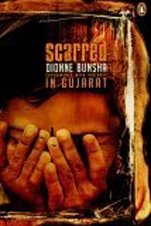Voting to stay alive
The refugees of Gujarat woke up early. They huddled into trucks. And went back home: to vote.
DIONNE BUNSHA
“Why are you taking photographs of Muslims? Where are you from? Pakistan?” a crowd asked me outside a polling booth in Delol village, Panchmahal. They had surrounded my car and were as demanding as a hounding papparazi. Finally, I managed to pacify them by flaunting an identity card with ‘The Hindu’ written on it. If this was how the locals taunted a journalist, you can imagine how they would intimidate a Muslim.
Yet, refugees huddled in a truck, with police security, and went back to their village to cast their vote. They didn’t even want to set foot in the village. Just into the polling booth and back to the truck. Women dare not step down from the truck. “It’s still very tense. So many were killed,” says Rabiaben Sheikh, whose son was murdered in the violence. “We have our farm here. It’s lying empty. It isn’t secure for us here. It’s better for us to stay in Kalol (a town nearby),” she says.
Fearing violence, but determined to vote, many Muslim refugees woke up at the crack of dawn and went back to their villages to vote. “We were the first to vote as soon as the booth opened,” said Bismillahbibi Kazi from Pavagadh village in Panchmahal. “They had threatened to start riots if Muslims vote. So we went early before they start any trouble. Our vote shouldn’t be wasted.”
“I’m getting a sinking feeling in my stomach,” said Shenaz Sheikh as we walked through her village Pavagadh. She hasn’t yet returned home after the communal riots in March. Pavagadh is a religious site visited by several pilgrims and tourists. Muslim stalls en route the temple were burned and captured. Local goons still throw stones at Muslim homes and shout insults at the few who have returned to their homes. “The Bajrang Dal boys don’t want us back. They keep staring at us. They can do anything, they could rape us,” says Rashida, Shenaz’s sister-in-law. But they have braved the threats to cast their vote. “We won’t stay long. We’ll just see our house and go back to Halol,” she said. Their family lives in a rented room in the nearby town.
Others are too afraid to even sneak a peek at their houses. “What’s there to see? We’ll just sit in the jeep and rush back to Halol,” said Hameeda Sheikh, a widow. Unlike Rashida, she doesn’t have a husband to escort her. “They drove us out and captured my tea shop. I can’t support my kids anymore. We are still living off rations given by the relief committee,” she said.
While some went back home for the voting, others fled their homes. In Naroda Patiya, where the most gory massacre occurred, people have fled to their relatives’ homes. “See, almost all houses are locked. People will return only after the results are announced. Some have stayed on to vote early. Then, they will also leave,” says Irshad Sayyed, a young resident here. However, relief committees will bring Naroda Patiya residents, who have been given accommodation in Vatva, back to the booth. They will return to Vatva after casting their vote.
Contrary to popular opinion, their determination to vote is not driven by any fatwa. It’s pure survival instinct.
Frontline, December 21, 2002 - January 3, 2003 Also available here

No comments:
Post a Comment